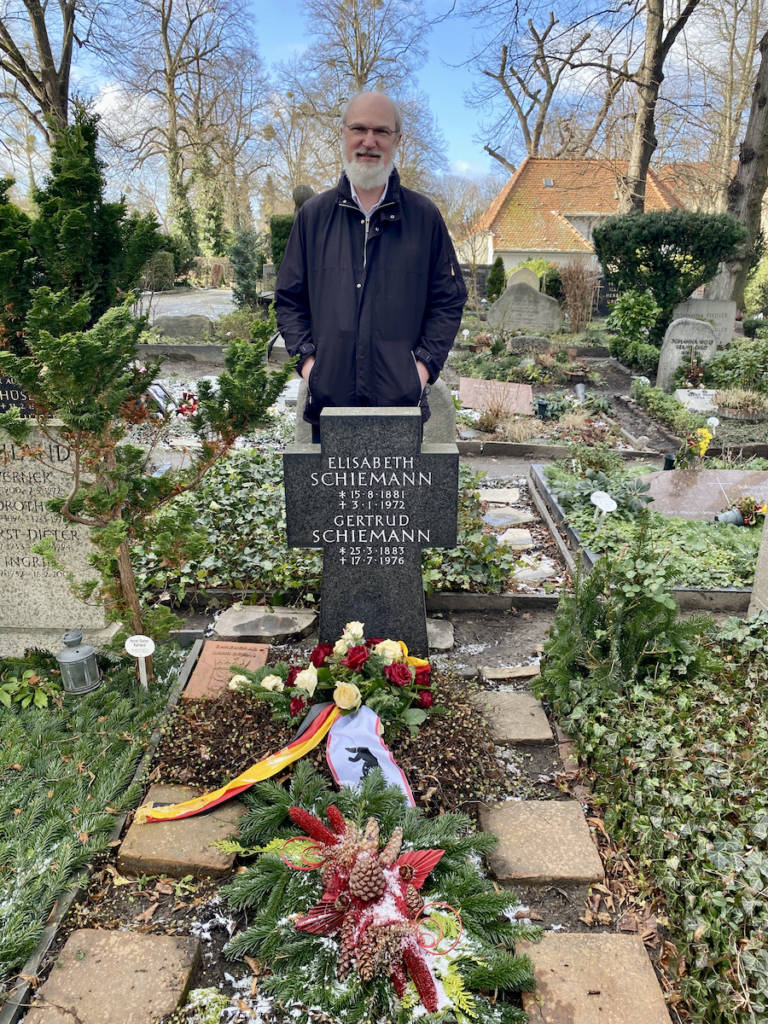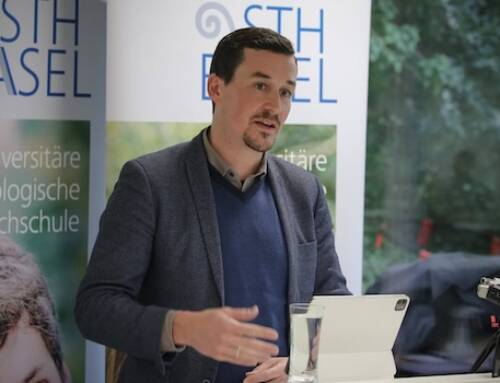NEWS FROM THE PRESIDENT

Thomas Schirrmacher visited the grave of Elisabeth Schiemann
The president of the ISHR visited the grave of Elisabeth Schiemann, who spoke out against National Socialism and was a “Righteous Among the Nations”
In preparation to his visit to Yad Vashem in Jerusalem mid 2022, Thomas Schirrmacher visited the grave of one of the “Righteous among the Nations”, an honor given by Yad Vashem for non-Jews who saved the life of Jews during the Holocaust. Elisabeth Schiemann (1881–1972) was honored with this precious title in 2014.

Thomas Schirrmacher at the grave of Elisabeth Schiemann © BQ/Martin Warnecke
Schiemann was born in Viljandi, Estonia, but lived in Berlin since 1887. She was one of the first women in Germany to study, do a doctorate and become a professor in Germany. With her doctorate of 1912 she lectured on seed science and reproductive biology with her actual field of research being the history of cultivated plants. From 1931 to 1943 Schiemann worked at the Berlin-Dahlem Botanical Institute. Her book ‘Entstehung der Kulturpflanzen’ (‘Origin of cultivated plants’) was published in 1932, becoming a reference work in the field of cultivated plants and brought her international recognition and fame.
In 1931, she became a faculty member at Berlin University. As one of the world’s leading experts on genetics, she openly spoke out against the so-called racial politics of National Socialism and its pseudo-Darwinism, against the persecution of Jews and abolition of the multi-party system. This put her in conflict with the regime and in 1940 after a denunciation and dispute over her teaching position, her Venia legendi was withdrawn. Yet she returned to teaching in Vienna in 1943, in 1946 she received a professorship at the reopened Berlin University, teaching genetics and crop history there and stayed in top academic positions til her retirement in 1956.
Elisabeth Schiemann actively was involved with the resistance groups in the local church of Berlin-Dahlem and together with her sister Gertrud (1883–1976) she was a member of the Confessing Church in Berlin-Dahlem. She dedicated herself to writing to ministers and pastors of the Confessing Church, urging them to be more outspoken in their condemnation of the Nazi regime, and to governmental ministers protesting treatment of emigrating Jews. She helped sisters Valery and Andrea Wolfstein evade deportation and defended Jewish colleagues attending scientific symposia.

Thomas Schirrmacher in front of the Martin-Niemöller-House in Berlin © BQ/Martin Warnecke
After honoring the grave of Elisabeth Schiemann, Schirrmacher also visited the St. Annen Church in Berlin-Dahlem, to which the graveyard belongs. During National Socialism (1933–1945), the church was a place of the Confessing Church. Here, from July 4, 1937, after the arrest of its pastor Martin Niemöller, the congregation gathered every evening at 6 p.m. for intercessory prayer services for all prisoners. The second Confession Synod met in the parish hall across the street on October 19 and 20, 1934. The pastors Franz Hildebrandt and Helmut Gollwitzer also worked at St. Annen during this time.
From there Schirrmacher went on to the neighboring house, the pastor’s home, which today is the Martin-Niemöller-House, a place of remembrance as well as of research into the Confessing Church resisting Hitler. Schirrmacher presented his two-volume book ‘Hitler’s Kriegsreligion’ (‘Hiltler’s Religion of War’) to the library of the Niemöller-House.





